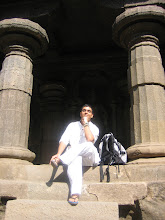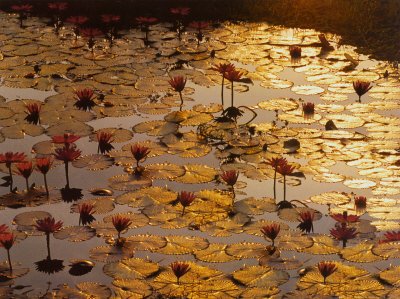
Introduction.
As the 2008 US Presidential Election draws near, it seems appropriate to take a look at one of the most famous speeches in modern politics: the Inaugural Address of John F. Kennedy. The full text can be found here while an excerpt of the most famous part is shown below.
As a relatively young and idealistic new president, JFK had to focus on addressing the major concerns the country had. We shall take a look at the final, and most well known, portion of his speech.
In the long history of the world, only a few generations have been granted the role of defending freedom in its hour of maximum danger. I do not shrink from this responsibility--I welcome it.
In these lines, JFK is making us think about the point in time that we are living in. The earth, geologists tell us, is about 5 billion years old. Humans have been around for the past 150,000 years. Mesopotamia, generally regarded as the oldest civilization, goes back 7000 years. On an astronomical timescale, 7000 years is faster than a blink of the eye.
Among the various religions, Siddhartha Gautama (aka Shakyamuni Buddha) taught something quite interesting. While he was regarded as a Fully Enlightened teacher of the Dharma, the Path that to leads to the end of suffering, he did not claim to have been the only Buddha. In fact, he taught that he was only the latest in a line of Fully Awakened beings. Shakyamuni Buddha himself says:
"I saw an ancient path, an ancient road, traveled by the Rightly Self-Awakened Ones of former times. And what is that ancient path, that ancient road, traveled by the Rightly Self-Awakened Ones of former times? Just this Noble Eightfold Path."
Because Buddhism teaches that the universe has no beginning or end (i.e. time is cyclical) we can say that there have been an infinite number of Buddhas in the past and that there will be an infinite number of Buddhas in the future. This means that there's always an enlightened teacher around to guide us, right? Not quite.
In the "long view of history" there many be infinite Buddhas but the lengths of time that Buddhas dwell in the world, and more importantly, the length of time that their teachings remain in the world, is not very long. "Very few generations" have the opportunity to practice the Dharma. Because the Buddha Dharma is the way which leads us out of suffering, it is not a stretch to say that the Dharma is freedom itself.
We can understand "defending freedom" as wholeheartedly committing ourselves to practice as best we can. To be able to practice freely and openly, without fear of oppression or punishment, is a precious thing indeed. A popular verse, often recited during evening liturgies in Chinese temples is Samantabhadra's Adomintion:
"The day has passed. Our lives too are closing.
Like fish with little water, joy will not last.
(Oh Great Assembly!)
Let us practice with diligence, as we would were our heads aflame.
Be mindful of impermanence and be careful of idleness!"
In the Ch'an/Zen tradition, it is said that practicing the Dharma is like taking up the family business, i.e. the family of Buddhas and Bodhisattvas. As part of the family, we have responsibilities that we must not shirk from.
I do not believe that any of us would exchange places with any other people or any other generation. The energy, the faith, the devotion which we bring to this endeavor will light our country and all who serve it--and the glow from that fire can truly light the world.
Just about every generation of humanity has had to confront some kind of monumental task. Whether it is surviving during an Ice Age, dealing with the turmoil of war, or rebuilding a land devastated by natural disaster, humans have had to find a ways to triumph. Even if their solutions were not perfect, they did well enough to allow their descendants (i.e. all of us) to live on. As humans living in the 21st century, we've got our own unique problems to deal with such as global warming, the energy crisis, nuclear proliferation, and international terrorism. These issues are some of and perhaps the most challenging things that humans have ever had to face. Dealing with them will take all the "energy, faith, and devotion" we can muster.
More than anything, this speech is known as a call to service. Although JFK is speaking in terms of serving one's country (the US in this case) we can easily extend this call to selfless service in general. The Buddha himself told his disciples in the Vinaya (Monastic Code):
"Go forth, o bhikkhus, for the good of the many, for the happiness of the many, out of compassion for the world, for the benefit, for the good, for the happiness of gods and men. Let not two go by one way."
Compassionately working for the benefit of others is the very essence of the Bodhisattva Path. In the Avatamsaka Sutra, Samantabhadra Bodhisattva gives an eloquent if mystical praise of the highest Awakened beings. Their virtues can light up the world. Literally.
"The boundless sea of kshetras, with myriad differentiations,
Resembles a bank of clouds drifting in space.
Jeweled wheels cover their ground in wondrous adornment
Under the dazzling light of the Buddhas’ radiance.
Mere discriminations of the mind,
All lands appear in shining light.
Manifesting within the seas of kshetras,
Each and every Buddha displays his spiritual powers."
And so, my fellow Americans: ask not what your country can do for you--ask what you can do for your country.
My fellow citizens of the world: ask not what America will do for you, but what together we can do for the freedom of man.
These are the most well known lines of the speech. Instead of having people sit around and let the government magically take care of society's problems, JFK instead asks society to help itself. The theme of this speech is not only service but also the qualities that are needed to undertake a vast endeavor, namely energy and diligence. Unsurprisingly, both of these qualities are also included in the list of the Pāramitās (पारमिता) or Transcendent Perfections that bodhisattvas must cultivate on the Path to Awakening. Energy and diligence are known in the texts as vīrya (वीर्य) and kṣānti (क्षान्ति) respectively.
 Much has been spoken of service but what exactly are we to do? Shall we quit our jobs, give away all our possessions to charity, and become lifelong humanitarian aid workers? While there's certainly nothing wrong with that course of action, it just isn't practical for most people. JFK however, is not saying that we should aspire to be super heroes. Whatever we can do is more than enough. Mother Teresa, a true bodhisattva, said "we can do no great acts, only small acts with great love."
Much has been spoken of service but what exactly are we to do? Shall we quit our jobs, give away all our possessions to charity, and become lifelong humanitarian aid workers? While there's certainly nothing wrong with that course of action, it just isn't practical for most people. JFK however, is not saying that we should aspire to be super heroes. Whatever we can do is more than enough. Mother Teresa, a true bodhisattva, said "we can do no great acts, only small acts with great love."As president of the USA, JFK is of course talking to the American people but he's also addressing all citizens of the world. The influential, ancient Greek philosopher Socrates, was once asked where he was from. He replied, "I am neither Athenian, nor Greek. I am a citizen of the world."
To be a "citizen of the world" carries a greater meaning now than it ever has. Never before have all of the countries in the world been so economically, socially, politically, and culturally interconnected. In "The Way of the Bodhisattva" Shantideva says:
"91. The hand and the other limbs are many and distinct,
But all are one - the body to be kept and guarded.
Likewise, different beings, in their jobs and sorrows,
Are, like me, all one in wanting happiness...
94. And therefore I'll dispel the pain of others,
For it is simply pain, just like my own.
And others I will aid and benefit,
For they are living beings, like my body.
95. Since I and other beings both,
In wanting happiness, are equal and alike,
What difference is there to distinguish us,
That I should strive to have my bliss alone?"
The Persian poet Muslih al-Din Sa'di expresses a similar idea. This poem, called "One Body", is found in the United Nations Headquarters in New York.
"All human beings are
the members of
one body -
every person is a glint,
shining from a single gem.
When the world causes pain for one member,
how could the other members
ever rest in peace?
If you lack grief
for another one's sorrow,
why call yourself
a human being?"
Finally, whether you are citizens of America or citizens of the world, ask of us here the same high standards of strength and sacrifice which we ask of you. With a good conscience our only sure reward, with history the final judge of our deeds, let us go forth to lead the land we love, asking His blessing and His help, but knowing that here on earth God's work must truly be our own.
Having raised a call to service, JFK concludes by asking us to reflect on the nature of service. Why should we strive to benefit others with "high standards and sacrifice" when "a good conscience" is "our only sure reward" ?
In the Diamond Sutra, the Buddha speaks to his disciple, the Venerable Subhuti, about the true nature of generosity. He says:
"Subhuti, a bodhisattva who still depends on notions to practice generosity is like someone walking in the dark. He will not see anything. But when a bodhisattva does not depend on notions to practice generosity, he is like someone with good eyesight walking under the bright light of the sun. He can see all shapes and colors."
What the Buddha and JFK are both telling us the same thing: service is its own reward. If we act with selfish thoughts of how the things we do for others will only benefit us then our intentions are misguided. Selfless service that is not motivated by anything is true pinnacle of wisdom.
Rabindranath Tagore says:
"I slept and dreamt that life was joy. I awoke and saw that life was service. I acted and behold, service was joy."
The speech closes with an invocation to the divine. Despite this, JFK firmly says that "God's work must truly be our own." Even though Buddhism does not accept the idea of an omnipotent creator god, the take home message is the same for people of all faiths (and non-faiths): do not let idleness get the best of you. In his "Super Tuesday" speech, US Presidental candidate Barack Obama perfectly echoes JFK's call to service:
"Change will not come if we wait for some other person or if we wait for some other time. We are the ones we've been waiting for. We are the change that we seek."
These lines are also complimentary to Mahatma Gandhi's injunction to "be the change we wish to see in the world."









1 comment:
sadhu, sadhu, sadhu . . .
Post a Comment